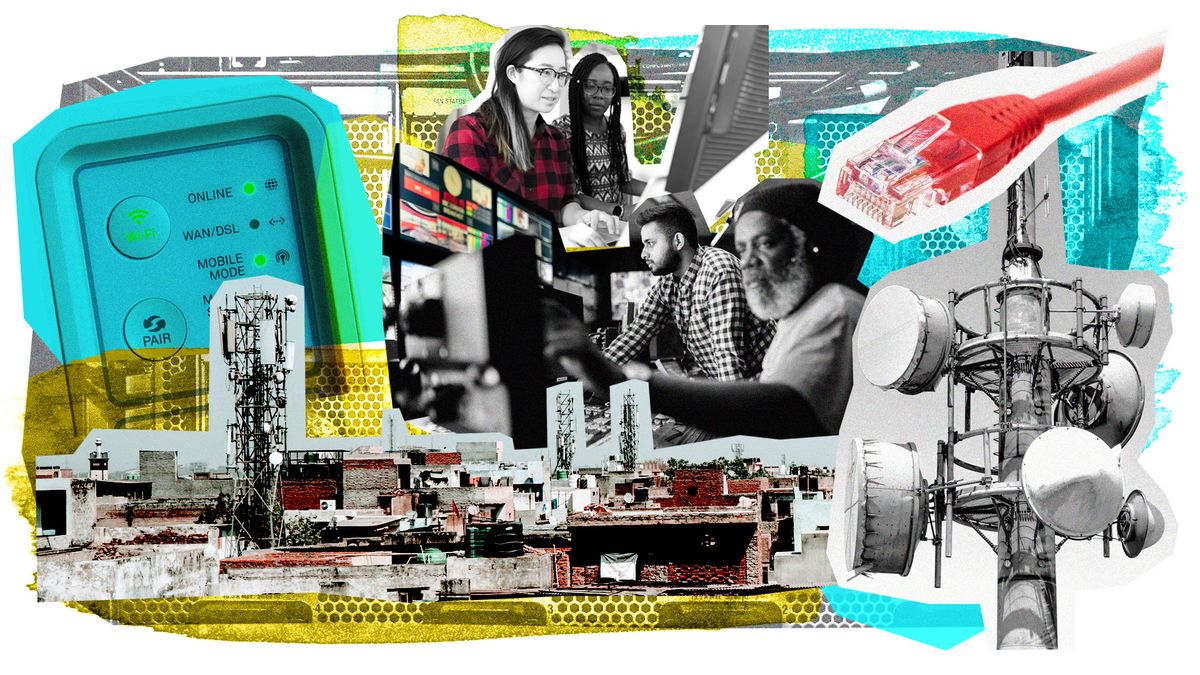Digital inclusion: Activating skills for the next billion jobs

The COVID-19 crisis has put millions of people out of work and exacerbated economic inequality around the world. It has also squeezed years of digital transformation of the economy into just a few months — opening up new possibilities and challenges. Many workers will likely spend the next year or two in a "hybrid economy," with work continuing at least partially remotely. That means it will be more important for people to have the tech skills to succeed in a totally new workplace.
Connecting the more than 3 billion people who today lack reliable internet access to the communications tools and essential services they need to participate in the modern economy is an essential first step. Broadband is the electricity of the 21st century. Without universal access to broadband, the economic recovery from COVID-19 will be neither comprehensive nor inclusive. The pandemic underscores the risks of a digital divide — increasing the reliance of households, small businesses, and entire economies on internet access, while leaving those without it further and further behind.
In addition to eliminating or transforming current jobs, the pandemic may also generate many new ones. If industries maximize digital transformation, the 2020 lockdown could generate by 2025 as many as 150 million new tech jobs in software development, cyber security, data analysis, and other fields. To take advantage of this opportunity, governments, the private sector, and international organizations will need to invest in teaching workers new skills and reverse a two-decade decline in training on the job.
In order to make sure that the post-pandemic economic recovery is inclusive, we need to ensure that all people — especially those unreached or displaced by technology — have access to the skills needed for jobs and livelihoods as well as the connectivity to enable the development of the skills needed in this more digital economy.
What's the UN doing about it?
The International Telecommunication Union (ITU) - the UN's specialized agency for information and communication technologies - is tackling digital inclusion through its Connect 2030 Agenda. The Agenda is working across five goals:
- Growth - enabling and fostering access to the digital economy,
- Inclusiveness - bridging the digital divide and providing broadband access for all,
- Sustainability - managing emerging risks, challenges, and opportunities as society digitizes,
- Innovation - driving technological improvement, and
- Partnerships - broadening the coalitions working to expand access to digital opportunities.
The UN and ITU play a key role in collecting data — more than 100 indicators across 200 economies — to help better understand connectivity challenges and to benchmark progress toward closing the digital gap and expanding opportunities, including for women, youth, and minority communities.
On the ground, the UN also works extensively with governments and businesses to expand digital access and training in developing countries — from Colombia and Kenya to Thailand and beyond. But the UN can't do this alone, particularly when so much important data and insights are being generated by private tech platforms — from videoconferencing to networking to content creation — that underpin the 21st century economy.
How are others trying to help?
Industry, civil society, and government have to help prepare people with the skills they need for a 21st century economy. A key bottleneck is access, especially in rural or low-income areas. Technology firms including Microsoft have launched programs to connect people with fast, safe, and reliable internet, and to ensure that once they get online they can take advantage of educational resources to build up skills. Microsoft's Airband program to expand internet access in rural communities is operating in 20 countries, 25 US states, and serving 16 million people through programs and partnerships. And it in turn is helping to support Microsoft's commitment to help 25 million people worldwide acquire the digital skills needed in a post-pandemic economy.
What's needed next?
Everyone has a role to play, from government to industry to nonprofits. Employers can play a bigger role than they have in recent years to help employees develop these new skills. Governments can provide funding for citizens to access the relevant skills training or provide incentives to employers to do so. They can also make some of their data sets available for public use to enable job seekers and employers to identify in-demand skills and growth areas.
How can I get involved?
- Read the UN Secretary General's Roadmap for Digital Cooperation.
- Check out some case studies of what digital inclusion strategies can look like for creators, coaches, researchers, and refugees around the world.
- Adam Grant on post-pandemic WFH: CEOs still don’t get it - GZERO Media ›
- Adam Grant on post-pandemic WFH: CEOs still don’t get it - GZERO Media ›
- The Graphic Truth: New digital jobs in a post-pandemic world - GZERO Media ›
- Education’s digital revolution: why UN Secretary-General António Guterres says it's needed - GZERO Media ›

















